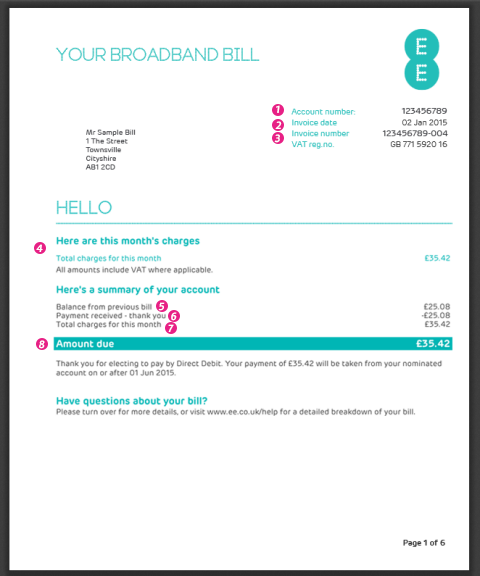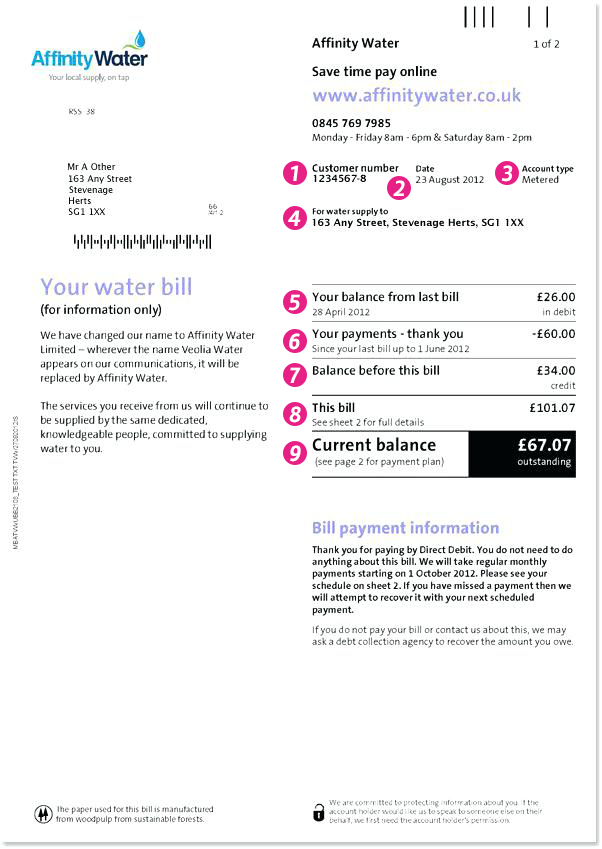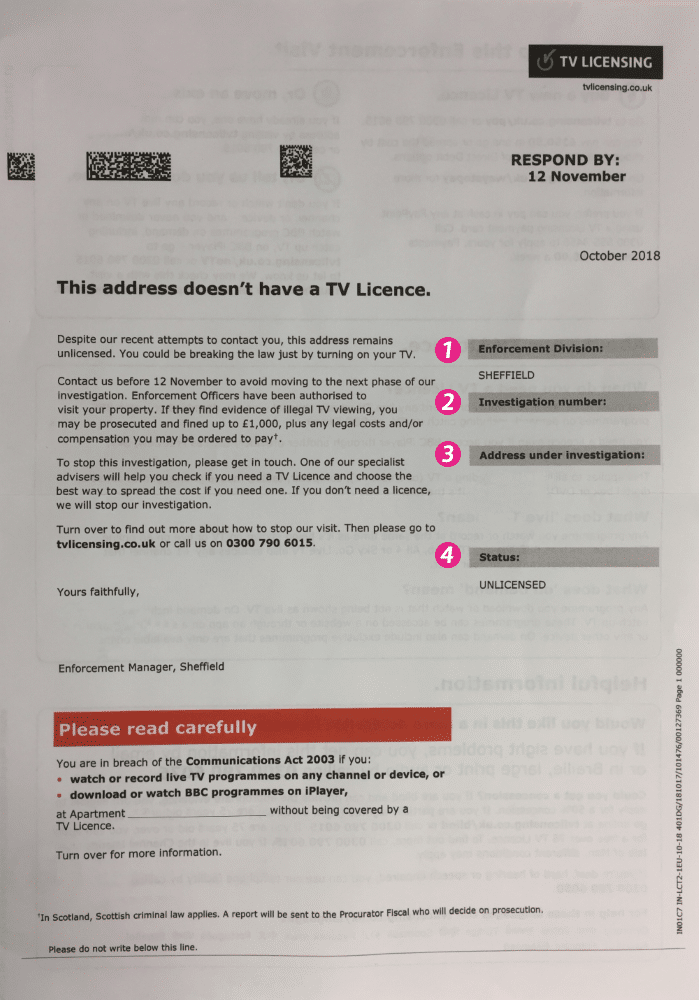Energy bills
Depending on how your energy bills are set up, you may get two bills—one for electricity and one for gas. In this guide we’ll be looking at a joint account for both of them.
- Account number: Your personal account number. Keep this safe as you’ll need it if you contact the energy company or pay bills online.
- Bill date: The date the bill was issued.
- Payment due: The date you should pay your bill by.
- Bill period: The period of time you’re being charged for. It will either be monthly, quarterly or annually.
- Supply address: This should be your address. Double-check to make sure it’s correct.
- Previous balance: The amount due from your last bill.
- Payments received: Any payments you’ve made on your last bill.
- Previous outstanding balance: Any money you may still owe from your previous bill.
- Total charges this bill: How much your electricity and gas costs for this bill.
- Services: The services you’re paying for and how much each one costs.
- Total: The total amount you owe.
- Direct debit: If you pay your bill by direct debit, this explains how much will be taken from your account and when.
For more information on setting up your energy bills, have a look at our guide, ‘How to set up your electric and gas bills’.
Broadband internet

- Account number: Your personal account number. You’ll need it if you contact the internet service provider.
- Invoice date: The date the bill was issued.
- Invoice number: A unique number used to identify this bill.
- Total charges for this month: The cost of this month’s bills.
- Balance from previous bill: The amount due from your previous bill.
- Payment received: The amount you paid towards your last bill. If you paid too much or too little, this will be reflected in the current bill.
- Total charges for this month: What you owe for this month (excludes any remaining debt from previous months).
- Amount due: The overall amount you need to pay this month.
For more information on setting up your broadband, check out our guide, ‘How to set up your broadband bills’.
Water bill

- Customer number: Your personal account number. Keep this safe as you’ll need it if you contact the company or pay bills online.
- Date: The date your bill was issued.
- Account type: Your water will either be metered or unmetered. Find out more in our XXX guide.
- Water supply address: This should be your home address—ensure it’s correct.
- Balance from last bill: Any debt or credit carried over from your previous bill (depending on whether you overpaid or underpaid).
- Your payments: The amount you paid towards your last bill.
- Your balance before this bill: The amount you owe, taking into account any payments you’ve made between your last bill and this one.
- This bill: How much this bill will cost.
- Current balance: The overall amount you owe. This takes into account any previous credit or debit.
If you’d like more information on setting up your water bills, our guide, ‘How to set up your water bill’, has everything you need to know.
TV licence

- Enforcement Division: Your local TV licence division
- Investigation Number: When a location is not registered for a TV licence and the tenant has not stated that they do not require one, an investigation is opened. This is the number of the investigation if you need to contact TV licence.
- Address under investigation: Make sure this correlates your address.
- Status: This will either be ‘licensed’ or ‘unlicensed’. If you are receiving these letters, you are most likely unlicensed.
It should be noted that these letters use strong rhetoric to ensure you feel the seriousness of the situation. If you do not need a TV licence, simply contact TV licensing. If you explain that you do not need a licence, they will cease investigating until next year.
Our guide, ‘How to set up your TV Licence’, has all the information you need about setting up and paying your TV licence in a shared house.





